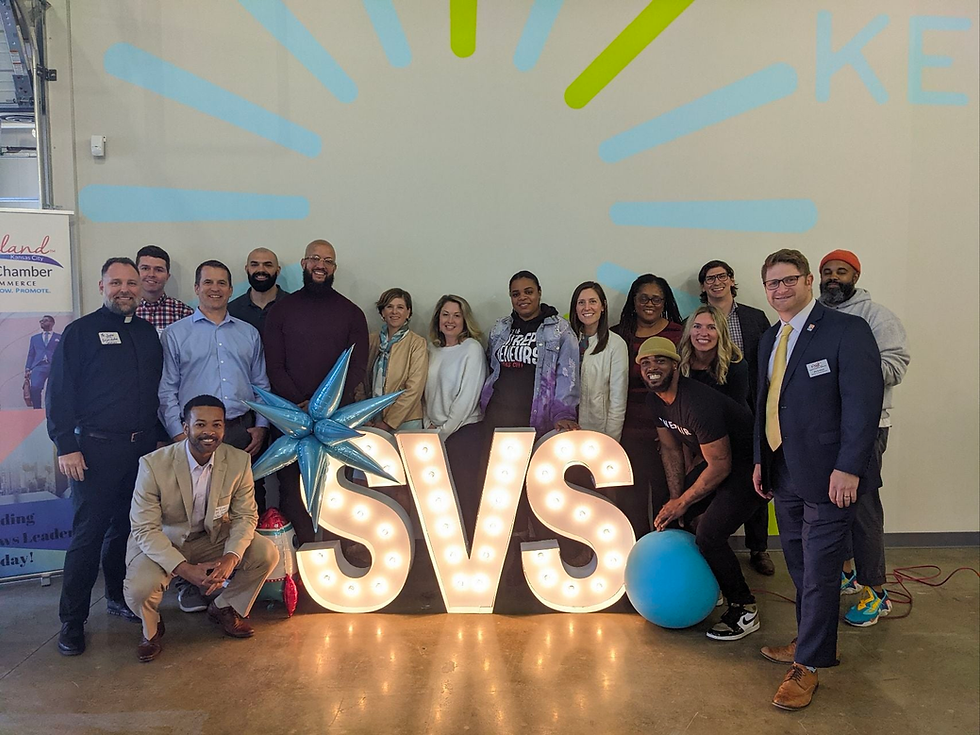KEYSTONE INNOVATION DISTRICT ANNOUNCES GOVERNING BOARD
- KCC

- Mar 10, 2020
- 3 min read
Board Members include prominent leaders from several area universities, corporations, entrepreneurs and civic groups.
KANSAS CITY, MO. – (March 11, 2020) – For more than a century, the KC region has been a leader in global design and innovation. From architecture and engineering to technology and product development, KC-based innovators have revolutionized industries.
However, unlike other cities around the world, KC has never had a central location where this broad spectrum of innovators could come together to learn, explore and collaborate. That’s what the Keystone Innovation District is aiming to anchor at 18th and Troost. The district has an ideal location, centered between four other important districts in KC: The Historic 18th and Vine Cultural District to the east, the Crossroads Arts District to the west, The Health Sciences District to the south, and the downtown Central Business District to the north.
In the winter and fall of 2019, the Kauffman Foundation funded a study to determine best practices for the formation of a formal governance structure for the Keystone Community Corporation, a non-profit overseeing programming and partnership development for the Keystone Innovation District led by former Sprint executive, Kevin McGinnis. This followed an initial market assessment and feasibility study was completed in late 2018 with the support of KC Rising and other civic leaders.
The study, completed by nationally recognized advisory firm, HR&A Advisors, concluded that an innovation district in Kansas City would benefit the area by addressing gaps in economic opportunity, community development and regional collaboration. Additional governance recommendations were developed by HR&A to address overarching themes present in feedback the firm received from over 100 discussions with community, corporate, non-profit and civic stakeholders.
“For more than a decade, innovation districts have become transformational in regional economies,” says Bruce Katz, the Director of the Nowak Metro Finance Lab at Drexel University. “The Keystone District in Kansas City has the potential to reshape how businesses, educational institutions and civic groups work together in today’s innovation economy. Their approach to equity, inclusion and engagement can become a new model for districts to follow in decades to come.”
The initial governing structure recommendations included establishing a Governing Board, comprised of leaders in education, entrepreneurship, and the business community. This core team of Keystone advocates reinforce the Keystone mission of bi-state cooperation, regional impact, equity and inclusion, and cross-industry collaboration. The initial Governing Board members include:
Doug Girod, Chancellor, University of Kansas
Mauli Agrawal, Chancellor, University of Missouri – Kansas City
Kimberly Beatty, Chancellor, Metropolitan Community College
Elizabeth MacLeod Walls, President, William Jewell College
Denise St. Omer, VP of Grantmaking and Inclusion, Greater Kansas City Community Foundation
Steve Edwards, Chairman and CEO, Black & Veatch
Davyeon Ross, Co-Founder and President, Shottracker
Robbie Makinen, CEO, Kansas City Area Transportation Authority
Andrea Ellis, Director, Strategic Learning, Kansas City Public Library
Jeff Geheb, Chief Experience Officer, VMLY&R
“This group’s diverse perspectives, experience and expertise will help us collectively achieve our strategic imperatives. I’m excited to roll up my sleeves and get to work with each and every one of them,” said McGinnis When asked what excited her about the Keystone vision, Board Member Denise St. Omer said, “Keystone’s commitment to centering racial equity to the project. We’ve looked at other Innovation Districts, and while they are often located in historically under-resourced communities, we haven’t seen an intentional racial equity lens as part of the project’s design. This is a unique opportunity for Kansas City to demonstrate how this work can and should be done within communities.” In the coming months, Keystone Community Corporation will announce additional subcommittees, partnerships, programming efforts, and news about initial locations for programming.




Comments